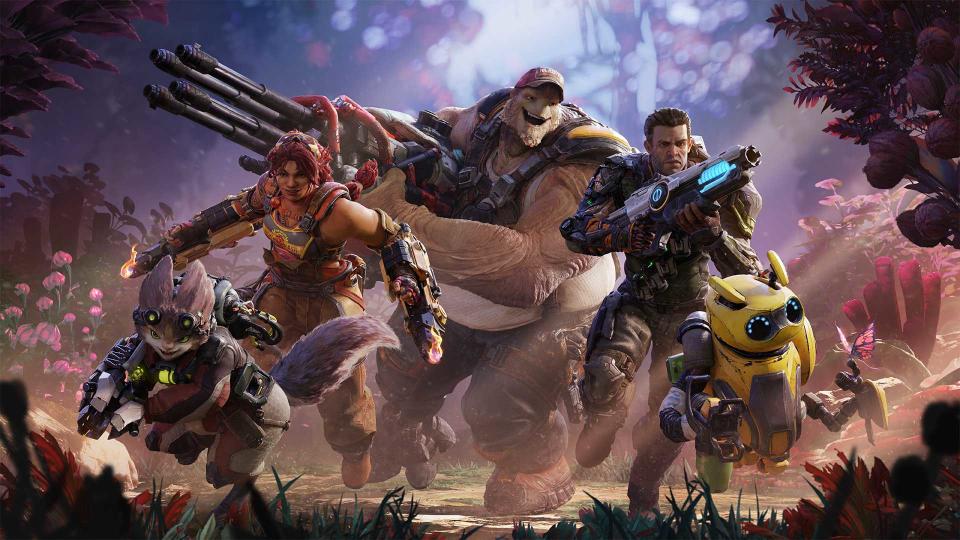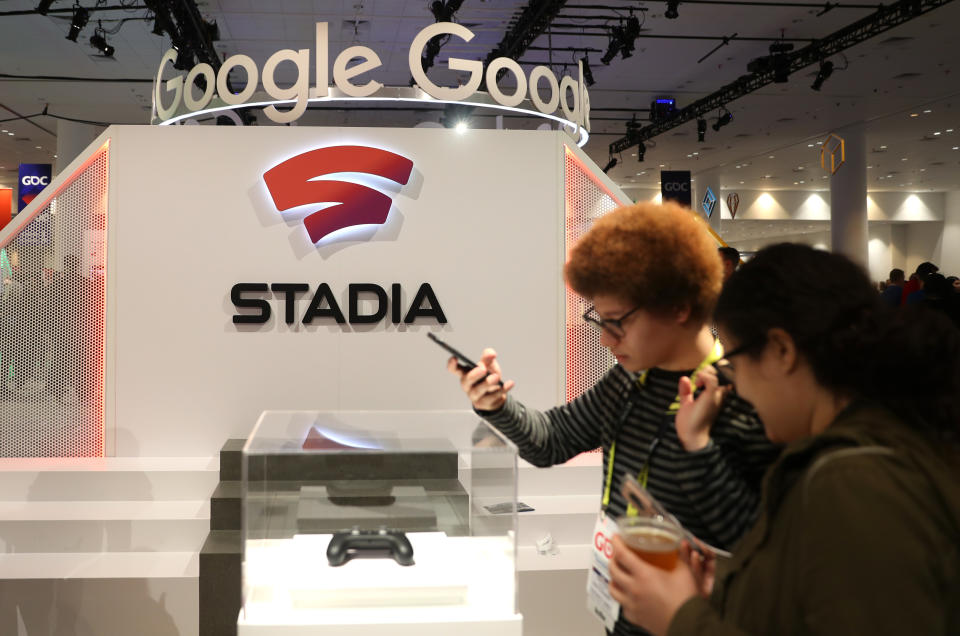Amazon could be a huge threat to the gaming industry
Amazon (AMZN) is officially a gaming company, and that should worry industry mainstays like Nintendo (NTDOY), Microsoft (MSFT), and Sony (SNE), as well as newcomers like Google (GOOG, GOOGL).
Amazon has been providing gaming content via its online store and its mega-popular Twitch streaming platform, but on Wednesday, the company launched its first big-budget title, a free-to-play game called “Crucible.”
Amazon will follow that up with another game later this summer called “New World,” and all of that is seemingly leading to the tech titan’s launch of a cloud gaming service called Project Tempo.
If successful, Amazon, which seeks to dominate every industry it enters with ruthless efficiency, could become a new gaming heavyweight, and that would spell trouble for gaming’s old guard.
The Crucible test
Amazon has been a major part of the gaming industry since it purchased Twitch, the online game streaming service, in 2014 for nearly $1 billion in cash. Twitch is the go-to platform for gamers who want to watch their favorite streamers play everything from old-school games to the latest blockbuster titles.
It made household names out of the likes of the streamer Ninja, who famously played “Fortnite” with rapper Drake, drawing more than 600,000 concurrent viewers, crushing the previous record of 388,000 viewers. It’s also become a major marketing tool for game publishers who seed Twitch streamers with their latest titles, which, in turn, puts those games in front of millions of potential customers.
And that’s beyond the fact that Amazon is already a go-to destination for purchasing games and consoles, or that the company also has a Twitch Prime service that gives subscribers access to access to special in-game loot, as well as free titles every month.
But it’s “Crucible” that will prove to be Amazon’s most important test. The game, which is a hybrid of some of the most recognizable online games available, including Riot’s incredibly popular “League of Legends” and Activision Blizzard’s (ATVI) “Overwatch,” is the first AAA title from Amazon Games’ Seattle-based Relentless Studios.
The company has two additional production houses: Amazon Games San Diego and Amazon Games Orange County.

Amazon is taking the free-to-play route with “Crucible,” with the company hoping to make its money via in-game transactions similar to “Fortnite” or “Call of Duty: Warzone.” It’s a proven formula, as “Fortnite” alone has pulled in billions of dollars for Epic Games.
For “Crucible” to succeed though, it needs to be able to appeal to a large swath of gamers, and reach a critical mass that sends its popularity skyrocketing. The game is already being streamed on Twitch, but isn’t among the most-watched titles despite launching on Tuesday.
Other titles like “Grand Theft Auto V,” “League of Legends,” “Fortnite,” and “Valorant,” a game that is in closed beta, and therefore not available to the vast majority of gamers, are all bringing in far more viewers.
But that doesn’t mean “Crucible” won’t pick up steam and eventually be among the most watched games. And it isn’t the only title Amazon is launching this year.
The company is also developing a massively-multiplayer online role-playing game (MMORPG) called “New World,” which will make its debut in August. Amazon is also working on a game based on the “Lord of the Rings” franchise, which could draw in that brand’s significant following.
Heading for the cloud
While Amazon’s game studios could prove to be a major contender in the industry, the company’s biggest threat to the industry comes in the form of its cloud gaming platform, Project Tempo. The service, which would enable gamers to play their favorite games on any device, would put Amazon in charge of the pipes that players depend on to deliver games to their smartphones, tablets, laptops, and TVs.
Cloud gaming is still in its infancy, though. Google launched its own Stadia service in November 2019, but was met with lukewarm reviews due to the fact that its game catalogue was severely lacking compared to traditional consoles from the likes of Microsoft, Nintendo, and Sony.
Google’s platform also seemed rushed out the door in an effort to make the company the first to market in the cloud gaming industry. Because of that, it was missing several key key features at launch including its free tier, which only launched in April.

Amazon would seem to be perfectly positioned to take advantage of its dominant position in the cloud market to become a key player in the cloud gaming space. It has Amazon Web Services servers positioned around the globe, which could enable gamers in disparate countries to play games without experiencing slowdown.
But Amazon has two issues to contend with: Microsoft and consumers’ internet speeds. Microsoft is the second largest player in the cloud space, and it’s actively working on its own cloud gaming platform called Project X Cloud. That service, when paired with Microsoft’s existing Xbox Game Pass, which gives gamers access to more than 100 games for a single monthly fee, will prove to be an incredibly appealing offer.
Microsoft also has the gaming pedigree, game catalogue, industry relationships and name recognition that give X Cloud the kind of boost that it would need to become a successful gaming platform.
Amazon, and all cloud gaming providers, also have to deal with the fact that in order for cloud gaming to take off, gamers need home internet speeds that are able to transmit data fast enough to avoid any kind of lag. Even a millisecond of interruption in a game can mean the difference between a solid and terrible gaming experience.
If gamers’ internet can’t handle cloud gaming, it’ll be a huge impediment to Amazon’s cloud ambitions.
Still, it’s incredibly difficult to write off Jeff Bezos and company when it comes to any industry. And with Amazon’s AWS serving as the potential catalyst to make Project Tempo take off, Amazon could be a huge threat to the rest of the industry.
Got a tip? Email Daniel Howley at danielphowley@protonmail.com or dhowley@yahoofinance.com, and follow him on Twitter at @DanielHowley.
More from Dan:
Microsoft’s Surface Book 3 is a powerhouse rival to Apple’s MacBook Pro
Microsoft debuts supercomputer for developing human-like artificial intelligence
Follow Yahoo Finance on Twitter, Facebook, Instagram, Flipboard, SmartNews, LinkedIn, YouTube, and reddit


